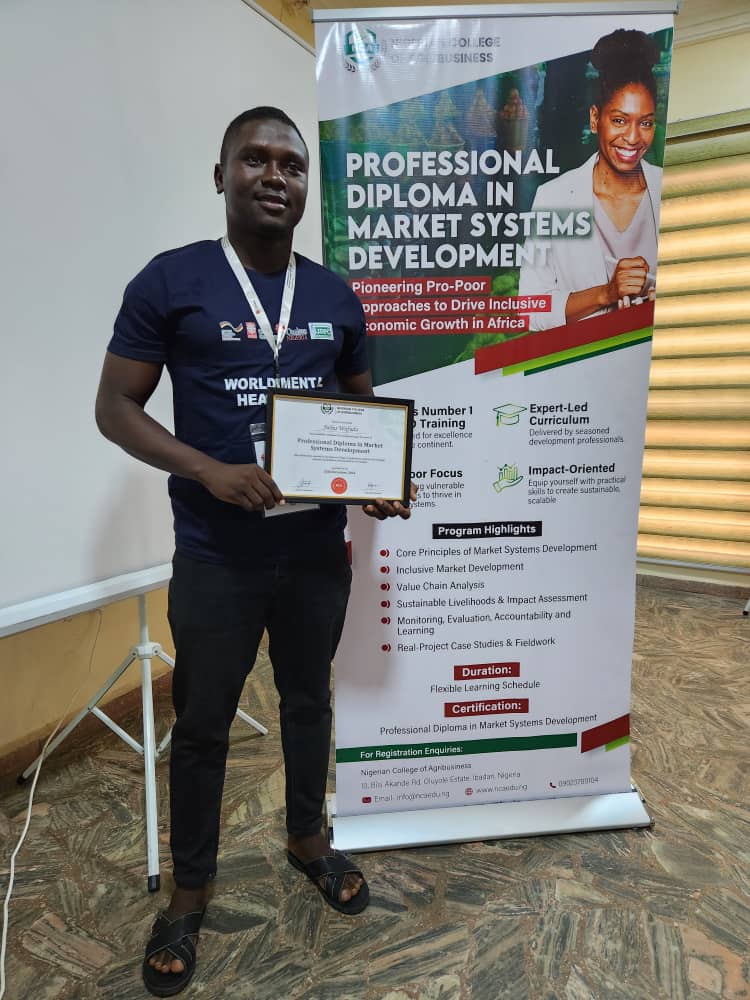Start Dates
Duration
Fees
Mode of Study
The Diploma in Climate Action Leadership is a dynamic and comprehensive program designed to empower professionals with the knowledge, skills, and leadership acumen necessary to tackle one of the most pressing challenges of our time—climate change.
The program integrates a multi-disciplinary curriculum that spans climate science, policy, economics, sustainable technologies, and practical leadership development.
Our goal is to nurture the next generation of climate leaders who will drive transformative change across various sectors.

Acquire practical skills, cutting-edge knowledge, and globally recognized methodologies tailored to drive success in agribusiness, sustainability, and market-driven solutions.
Build a strong professional network, access new market opportunities, and position yourself as a leader in agriculture, entrepreneurship, and sustainable development
Earn a prestigious certification from the Nigerian College of Agribusiness, recognized for its excellence. This certification not only validates your expertise but also enhances your career prospects in the competitive development and commercial sectors.
Foundation of Climate Science
International Climate Agreements
Climate Economics and Sustainability
Communication and Leadership for Climate Action
Climate Adaption and Resilience
Renewable Energy and Technology
Climate Justice and Equity
Climate Smart Specializations
Climate Finance and Investment
Carbon Accounting and Management
Climate Data Analytics
Climate Solutions Project

No other institution in Africa offers such a comprehensive approach to agribusiness and development sector education as the Nigerian College of Agribusiness. We provide a unique blend of academic rigor, practical expertise, and industry connections. Here, you will learn from experienced faculty members who are experts in their fields and deeply engaged with the latest advancements in their industries.
We leverage interdisciplinary knowledge and the latest research to enhance our programs, ensuring they are relevant and impactful. At NCA, you will continuously engage with thought leaders who are constantly shaping the dynamics of their industries and after graduation, you will be a life-long member of a vibrant alumni community that continually foster cross-disciplinary learning and networking.
STEP 1: Complete the Application for Admission Form for the course
STEP 2: A non-refundable application fee of N20,000 applies and will be deducted from the tuition upon enrollment. This is payable into
Zenith Bank
Account Name: Nigerian College of Agribusiness
Account Number: 1228461510
STEP 3: Attach receipt of Application fee with your highest academic credential and submit to: [email protected]
STEP 4: Upon successful evaluation of your application, you will receive your Admission Letter indicating acceptance into the program. The Letter will also contain details of enrollment into the Course.
Click on the link below to fill the application form for this course
Virtual: N300,000
Physical: N450,000
International Students: $400
Get monthly marketing tips and exclusive discounts straight to your inbox

Our mission is to cultivate a vibrant, sustainable and profitable agribusiness sector that drives economic growth and social progress across Africa and beyond.
We are committed towards educating a new generation of agribusiness sector leaders that will transform the economic fortunes of the African continent
© NCAEDU 2023 All Rights Reserved.